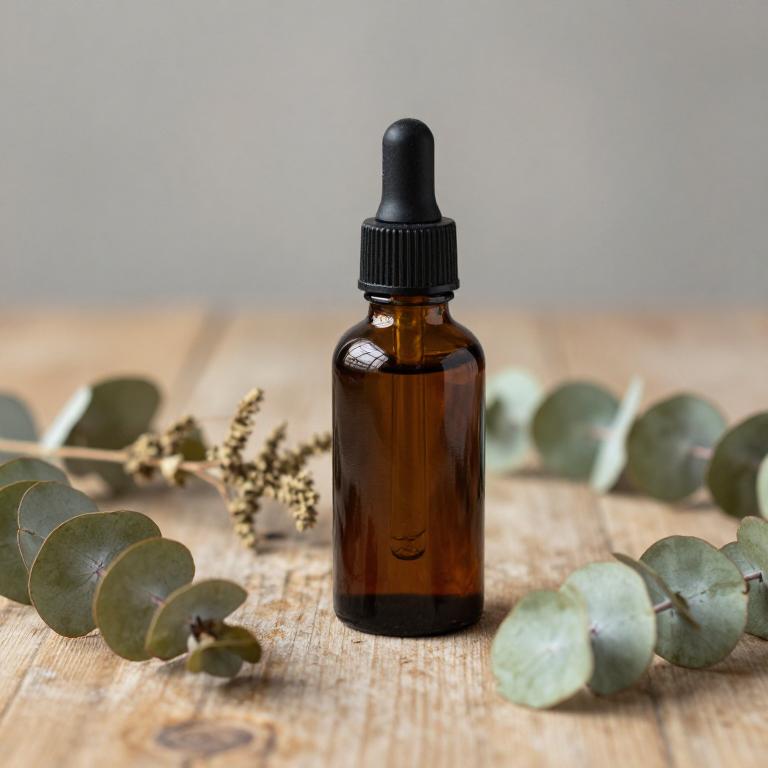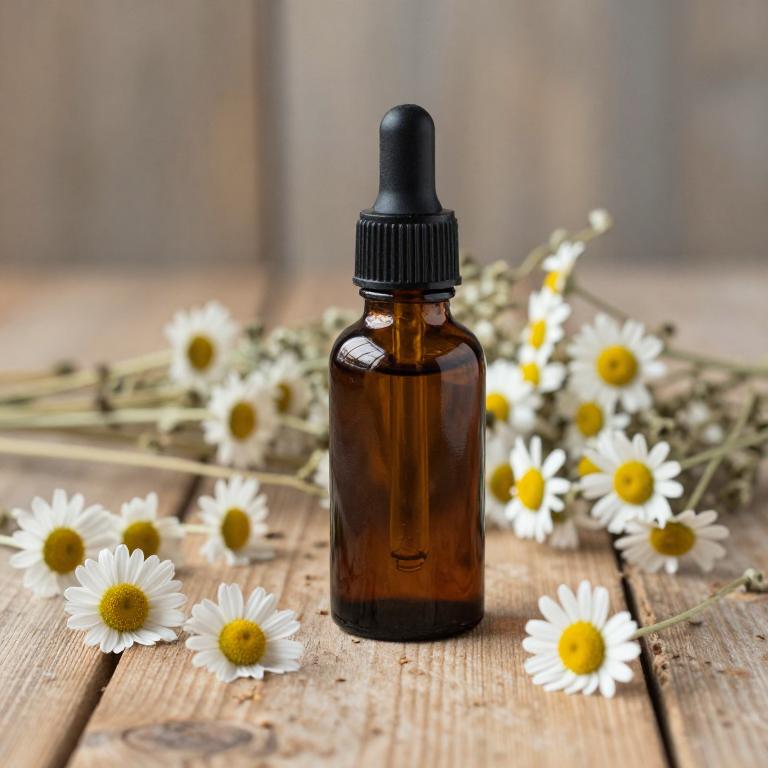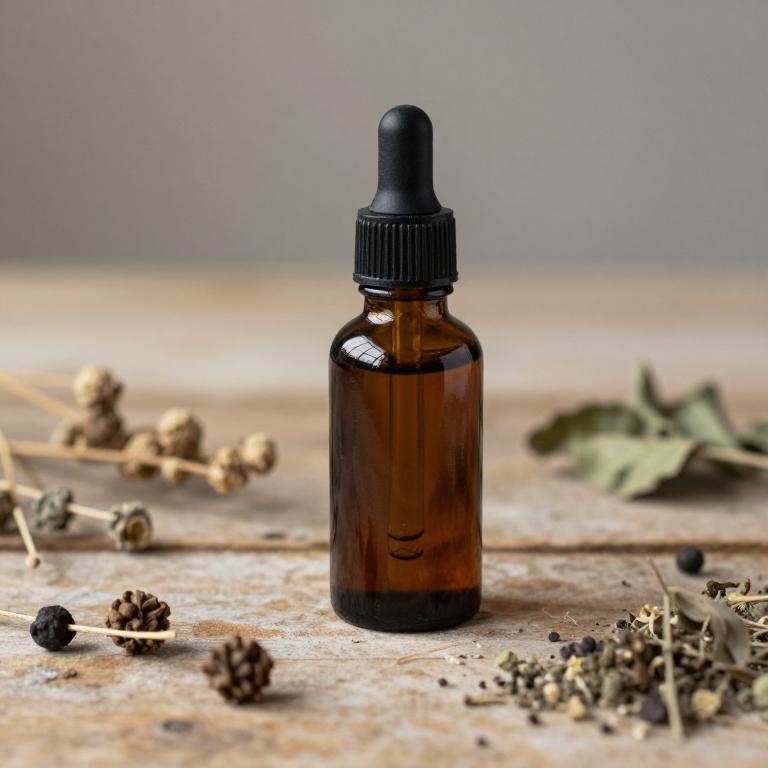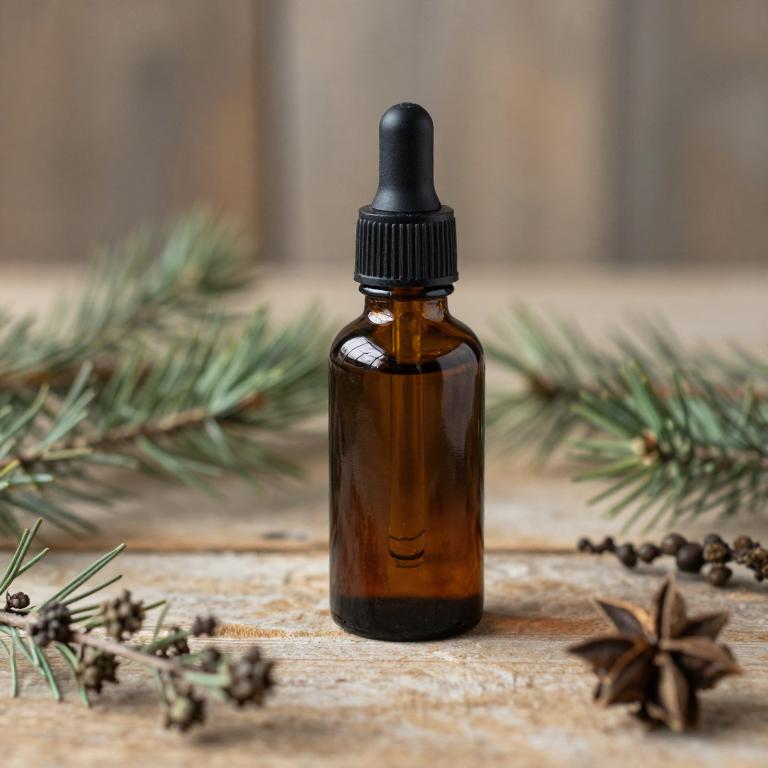10 Best Herbal Tinctures For Dry Cough

Herbal tinctures are concentrated liquid extracts made from medicinal plants and are commonly used to alleviate symptoms of dry cough, which is a persistent, non-productive cough without mucus.
These tinctures often contain herbs such as licorice root, mullein, thyme, and eucalyptus, which are known for their soothing and anti-inflammatory properties. They work by reducing irritation in the throat and airways, easing spasms, and promoting easier breathing. Herbal tinctures are typically taken orally, often diluted in water or tea, and can be a natural alternative for those seeking non-pharmaceutical remedies.
However, it is important to consult with a healthcare provider before use, especially for individuals with allergies or those taking other medications.
Table of Contents
- 1. Thyme (Thymus vulgaris)
- 2. Fennel (Foeniculum vulgare)
- 3. Eucalyptus (Eucalyptus globulus)
- 4. Chamomile (Matricaria chamomilla)
- 5. Ginger (Zingiber officinale)
- 6. Ceylon cinnamon (Cinnamomum verum)
- 7. Peppermint (Mentha piperita)
- 8. Scots pine (Pinus sylvestris)
- 9. Lungwort (Pulmonaria officinalis)
- 10. Chaste tree (Vitex agnus-castus)
1. Thyme (Thymus vulgaris)

Thymus vulgaris, commonly known as thyme, is a popular herb used in herbal tinctures to alleviate symptoms of dry cough due to its potent antimicrobial and expectorant properties.
The tinctures are typically prepared by steeping the dried leaves and flowers of thyme in alcohol, allowing the active compounds such as thymol and carvacrol to be extracted for enhanced potency. These tinctures work by soothing the throat and reducing inflammation, making them effective for persistent or chronic dry coughs. Thyme tinctures are often recommended as a natural alternative to over-the-counter cough medications, especially for those seeking herbal remedies.
However, it is important to consult with a healthcare provider before use, particularly for individuals with allergies or those taking other medications.
2. Fennel (Foeniculum vulgare)

Foeniculum vulgare, commonly known as fennel, is a herb widely used in herbal medicine for its soothing properties, particularly in alleviating dry cough.
Fennel tinctures are typically prepared by steeping the dried seeds in alcohol, allowing the active compounds such as anethole and fenchone to be extracted. These compounds are known for their antispasmodic and expectorant effects, which help to reduce throat irritation and loosen mucus, making them beneficial for persistent dry coughs. Fennel tinctures are often recommended as a natural alternative to over-the-counter cough remedies, especially for those seeking gentle, plant-based solutions.
However, it is important to consult with a healthcare professional before use, particularly for individuals with allergies or those taking other medications.
3. Eucalyptus (Eucalyptus globulus)

Eucalyptus globulus, commonly known as the Tasmanian blue gum, is a popular herb used in herbal tinctures for its expectorant and anti-inflammatory properties.
These tinctures are often used to alleviate symptoms of dry cough by helping to loosen mucus and reduce irritation in the respiratory tract. The active compounds in eucalyptus, such as eucalyptol and cineole, contribute to its soothing and decongestant effects. When taken as directed, eucalyptus globulus tinctures can provide natural relief for persistent dry coughs without the side effects associated with some pharmaceutical remedies.
However, it is important to consult with a healthcare provider before use, especially for individuals with allergies or underlying health conditions.
4. Chamomile (Matricaria chamomilla)

Matricaria chamomilla, commonly known as chamomile, is often used in herbal tinctures to alleviate symptoms of dry cough due to its soothing and anti-inflammatory properties.
The tincture is typically prepared by extracting the essential oils from chamomile flowers using alcohol, which helps preserve the active compounds that contribute to its therapeutic effects. Chamomile tinctures may help reduce irritation in the throat and ease the frequency of coughing by calming the respiratory tract. While generally considered safe, it is important to consult a healthcare professional before use, especially for individuals with allergies or those taking other medications.
Overall, chamomile tinctures can be a natural and effective complementary remedy for managing dry cough symptoms.
5. Ginger (Zingiber officinale)

Zingiber officinale, commonly known as ginger, has been traditionally used for its medicinal properties, including its ability to alleviate dry cough.
Herbal tinctures made from fresh or dried ginger root are often prepared using alcohol as a solvent to extract the active compounds, such as gingerol and shogaol, which have anti-inflammatory and bronchodilatory effects. These tinctures can help soothe the throat and reduce irritation, making them a natural remedy for persistent dry cough. When taken in appropriate doses, ginger tinctures may provide relief without the side effects associated with over-the-counter cough medications.
However, it is advisable to consult a healthcare professional before using ginger tinctures, especially for individuals with allergies or those taking other medications.
6. Ceylon cinnamon (Cinnamomum verum)

Cinnamomum verum, commonly known as true cinnamon, has been traditionally used in herbal medicine for its soothing properties, including its potential to alleviate dry cough.
The essential oils and compounds found in cinnamon, such as cinnamaldehyde and eugenol, possess antispasmodic and anti-inflammatory effects that may help reduce irritation in the respiratory tract. When prepared as a tincture, cinnamon can be diluted in alcohol to create a concentrated form that is easy to administer. This herbal tincture is often recommended for its warming and comforting effects on the throat, making it a popular remedy for persistent dry coughs.
However, it is important to consult with a healthcare professional before use, especially for those with allergies or underlying health conditions.
7. Peppermint (Mentha piperita)

Mentha piperita, commonly known as peppermint, is a popular herb used in the preparation of tinctures to alleviate symptoms of dry cough.
These tinctures harness the potent essential oils found in peppermint leaves, which have natural expectorant and antispasmodic properties. The cooling effect of menthol in peppermint can help soothe irritated airways and reduce the frequency of coughing fits. Peppermint tinctures are often preferred for their quick absorption and minimal side effects compared to conventional cough medicines.
When used as a complementary therapy, mentha piperita tinctures can provide relief from persistent dry coughs while supporting overall respiratory health.
8. Scots pine (Pinus sylvestris)

Pinus sylvestris, commonly known as Scots pine, has been traditionally used in herbal medicine for its potential respiratory benefits, including alleviating dry cough.
The tinctures made from its needles and cones are believed to have expectorant and anti-inflammatory properties that help loosen mucus and reduce irritation in the airways. These tinctures are often prepared using alcohol as a solvent to extract the active compounds, such as terpenes and flavonoids, which contribute to their therapeutic effects. When used as a complementary remedy, Scots pine tinctures may support respiratory health and ease symptoms of persistent dry cough.
However, it is important to consult a healthcare professional before use, especially for individuals with allergies or underlying health conditions.
9. Lungwort (Pulmonaria officinalis)

Pulmonaria officinalis, also known as lungwort, has been traditionally used in herbal medicine to support respiratory health, particularly for alleviating dry cough.
Its tinctures are prepared by extracting the plant's active compounds using alcohol, which helps preserve and concentrate its medicinal properties. The herb is believed to have expectorant and anti-inflammatory effects that may help reduce irritation in the throat and airways, making it beneficial for persistent dry cough. Pulmonaria officinalis tinctures are often used as a complementary therapy alongside other natural remedies or under the guidance of a healthcare professional.
Due to its historical use and potential therapeutic benefits, it remains a popular choice in herbal medicine for respiratory support.
10. Chaste tree (Vitex agnus-castus)

Vitex agnus-castus, commonly known as chasteberry, has been traditionally used in herbal medicine for its potential soothing effects on the respiratory system.
While not a primary treatment for dry cough, vitex tinctures may help alleviate symptoms by reducing inflammation and promoting a calming effect on the throat. Its mild expectorant properties can support the body's natural process of clearing mucus, making it a complementary option for those seeking natural remedies. However, it is important to consult with a healthcare professional before using vitex tinctures, especially if the cough persists or is accompanied by other symptoms.
As with any herbal remedy, the effectiveness of vitex agnus-castus can vary depending on individual health conditions and the underlying cause of the cough.